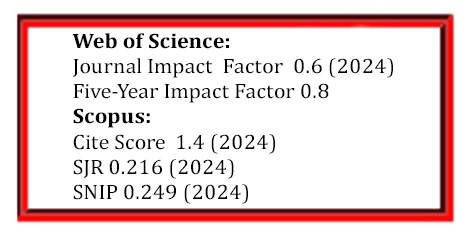Effect of Nano B4C on the Tribological Behaviour of Magnesium Alloy Prepared Through Powder Metallurgy
DOI:
https://doi.org/10.5755/j01.ms.26.3.21556Keywords:
AZ91, B4C, coefficient of friction, sliding wear, hardnessAbstract
In this present study, the particle size of as received magnesium alloy (AZ91) and B4C powders was reduced through high energy ball mills. The combination of AZ91 (both 10 µm and 60 µm) reinforced with nano B4C particles were fabricated by powder metallurgy technique. The incorporation of nano B4C particles to the Mg matrix was done at various weight % such as 5, 10, 15 and 20. The AZ91 composites were fabricated in a suitable die set assembly and the green compacts were sintered in an electric muffle furnace at 500 °C with argon atmosphere for a dwell time of 1 h. The density of the composites was estimated using Archimedes principle. Micro hardness test was carried out for the prepared specimens and dry sliding wear test was conducted by using pin-on-disc apparatus at room temperature with varying loads and sliding velocities by keeping a constant Sliding Distance (SD). Among the various specimens, the composite with 10 µm size attained a higher Vickers hardness value as well as better wear resistant property. Worn surface analysis of the prepared composites was studied using Scanning Electron Microscope (SEM).
Downloads
Published
Issue
Section
License
The copyrights for articles in this journal are retained by the author(s), with first publication rights granted to the journal. By virtue of their appearance in this open-access journal, articles are free to use with proper attribution in educational and other non-commercial settings.



